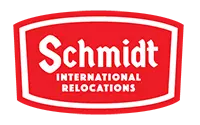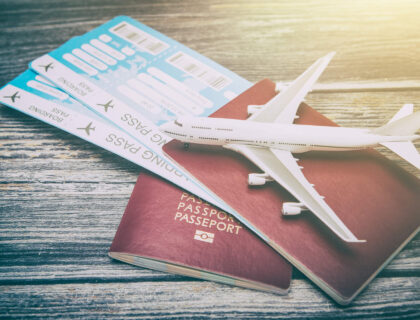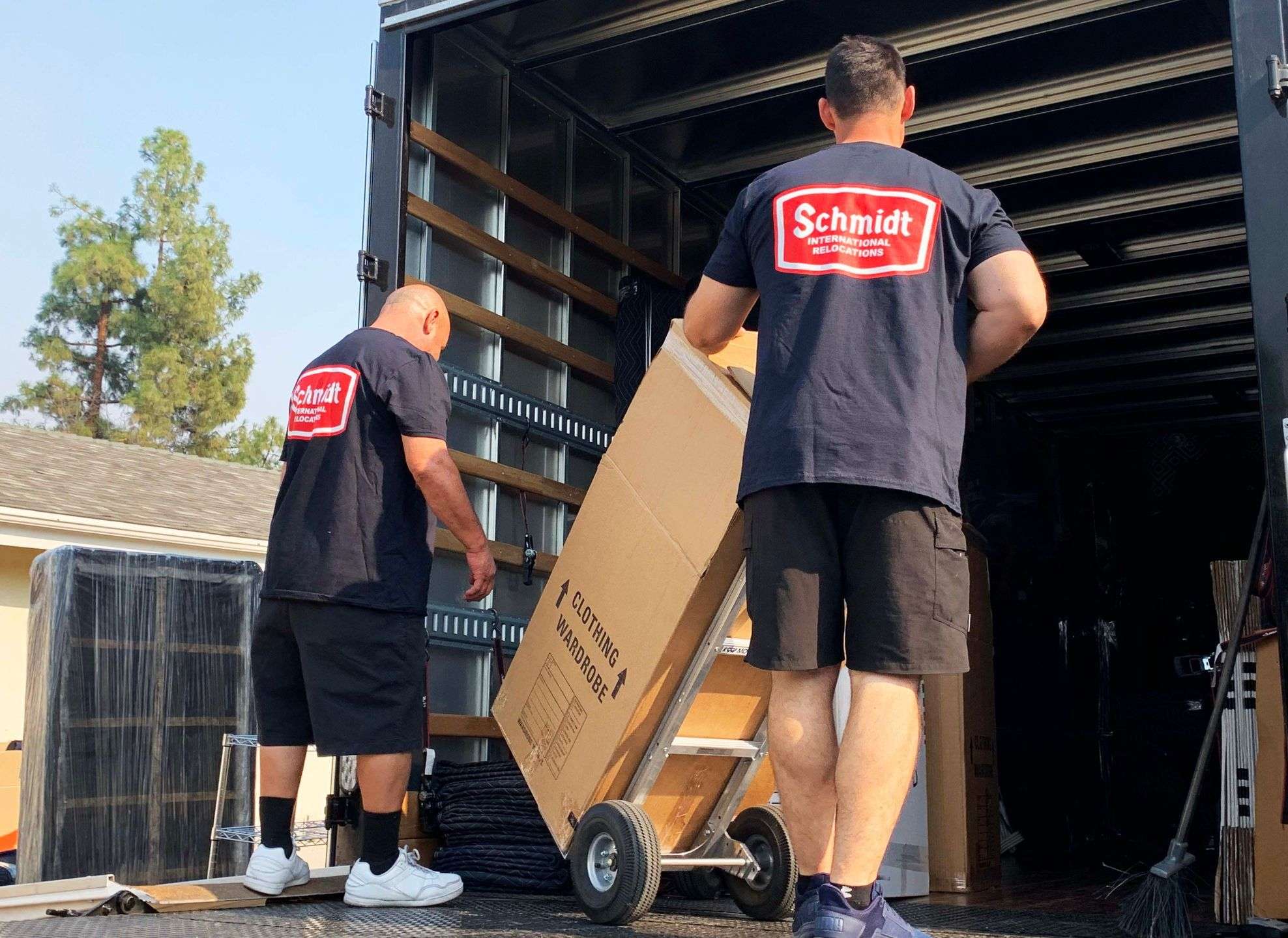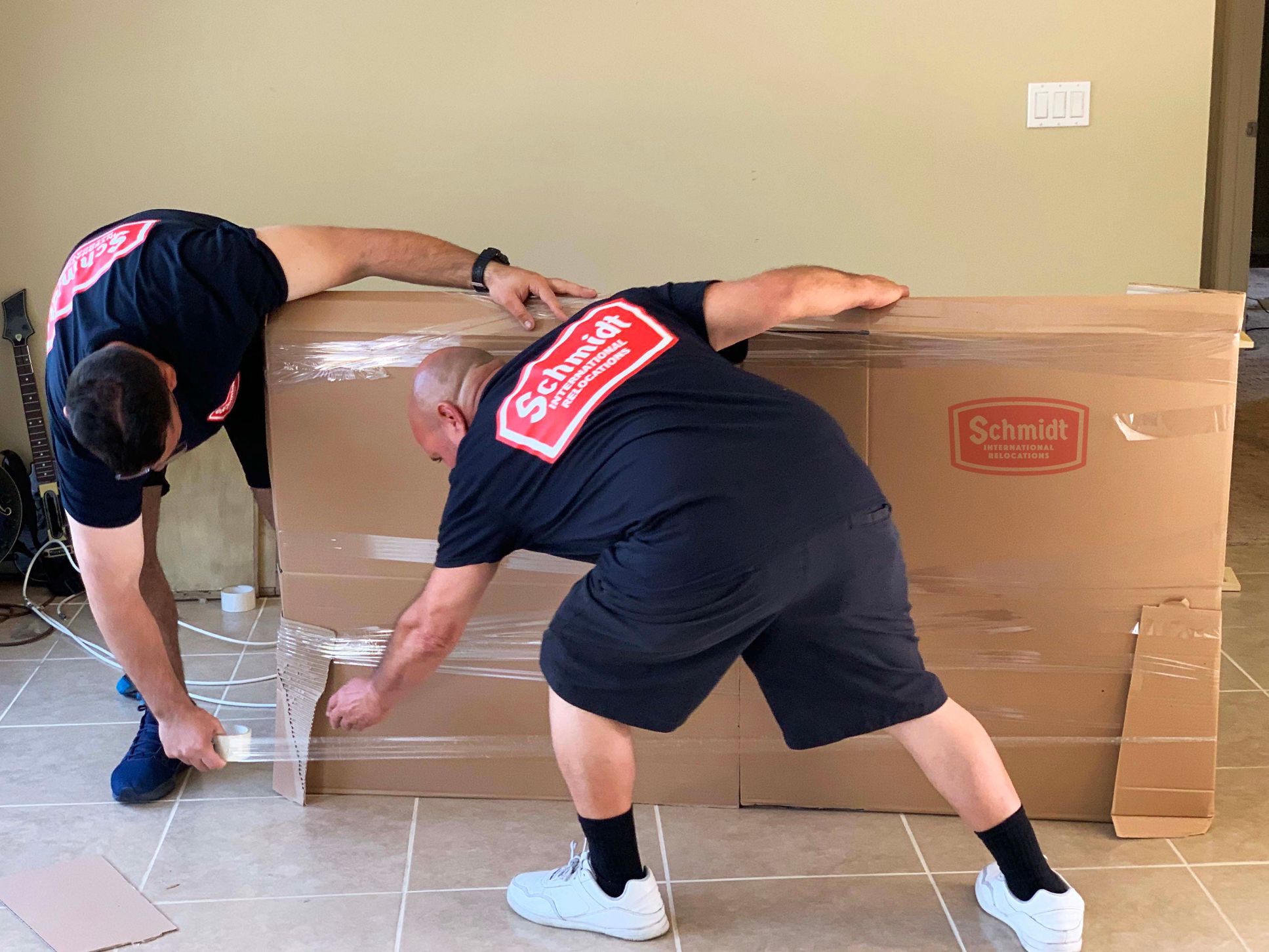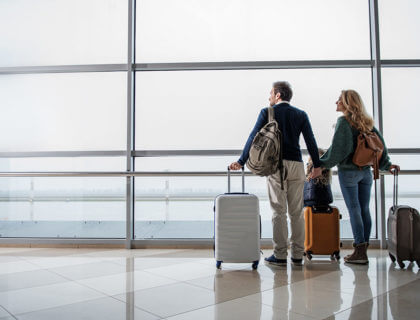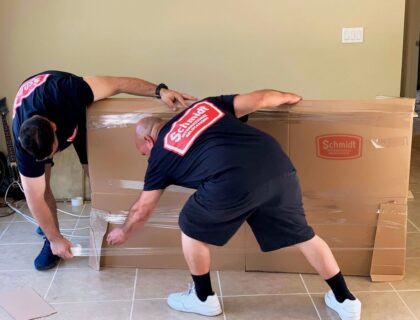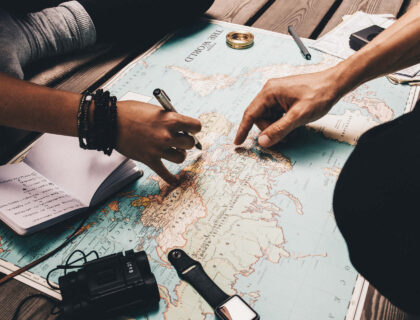

Embarking on an adventure across the globe begins with understanding how to plan a move abroad. This journey, thrilling yet challenging, requires meticulous preparation and a zest for embracing new cultures. In this guide, we’ll unpack the suitcase of knowledge, offering moving abroad tips that ensure your global relocation adventure is as smooth as a well-traveled suitcase’s wheels. Get ready to learn how to plan for a move like a pro.
How to Plan a Move Across the World With Ease?
When planning to move out of state that stretches across oceans and continents, the complexity of the task can seem overwhelming.
Yet, with a comprehensive approach, you can relocate efficiently, turning a potentially stressful endeavor into a smooth and exciting transition.
Begin with a thorough checklist that covers everything from securing international move insurance to protect belongings during transit to understanding visa requirements and setting up a budget that accounts for all possible expenses. Focus on detailed preparation and proactive problem-solving so that your journey to a new country is seamless and efficient. Make the dream of living abroad a reality with confidence and peace of mind.
Initial Planning Phase – First, Create a Relocation Checklist
Kicking off the initial planning phase demands crafting a detailed international relocation checklist, ensuring all relocation essentials are taken care of. Such a list serves as a pivotal reference point, encompassing tasks from securing international move insurance to setting up new bank accounts.
A smart tip to keep this checklist constantly accessible is utilizing digital tools – smartphones and apps designed for task management become invaluable allies in this process. By leveraging technology, individuals can seamlessly update, prioritize, and tick off completed items.
Research the New Destination
Delving into the cultural and legal facets of a new country is critical, not only to gauge the reasons to move there but also to appreciate the full spectrum of benefits of relocating. Comprehensive research should span from learning about local customs and societal norms to assessing the cost of living and environmental policies.
A website like Numbeo offers invaluable insights into various locations, providing data on living conditions and costs. Such thorough groundwork paves the way for a smoother adaptation to the new surroundings.
Gather the Necessary Documentation and Get a Visa
The foundation of a successful international transition is the accumulation of necessary legal documents, visas, and work permits.
For countries like the UK, applicants might need to secure a Skilled Worker visa if they are relocating for work, alongside making sure their passport is valid for a considerable period beyond their intended stay.
In contrast, Australia requires different visas based on the purpose of the stay, such as a subclass 482 visa for skilled workers. A comprehensive list should also include birth certificates, marriage certificates (if applicable), and police clearance certificates, among others.
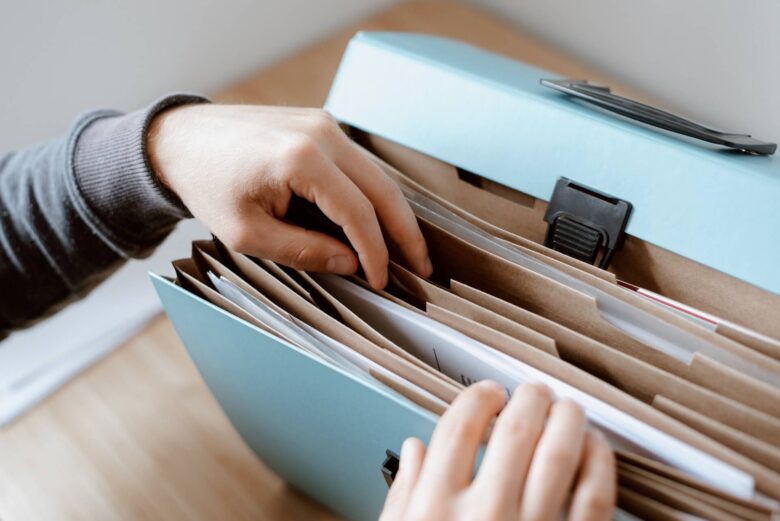
Set a Budget for the Relocation
Establishing a comprehensive budget is a cornerstone in preparing for relocating to a new city, encapsulating all possible expenditures from moving expenses to unexpected fees that may arise. Carry out an in-depth analysis of potential costs, including shipping rates for belongings, flights, temporary accommodations, and initial setup costs upon arrival.
To save money, one might consider options like shipping only essentials and comparing different relocation services for competitive pricing. Also, planning the relocation during off-peak seasons is a wise option. Setting aside a contingency fund can be a safety net in case of unforeseen expenses.
Create a Strategy for Managing Finances Across Borders
Managing finances when settling in another country requires a well-thought-out strategy that addresses the complexities of international banking, currency exchange, and tax implications.
Opening bank accounts in the destination country ahead of time can facilitate a smoother financial transition, allowing for immediate access to funds upon arrival. It’s advisable to research banks that offer accounts for expatriates or international clients.
Handling currency exchange demands awareness of fluctuating rates; thus, utilizing financial tools or services that offer competitive exchange rates and low fees is beneficial. Additionally, understanding the tax obligations both in the home country and abroad is crucial to avoid legal complications.

Choose a Reputable International Moving Company
Selecting a reputable international moving company is a critical step in ensuring that belongings reach their new home safely and efficiently. When hiring movers for an overseas relocation, it is imperative to conduct thorough research to verify the company’s credibility and reliability. A fundamental tip is to check the Better Business Bureau website for ratings and any lodged complaints.
Additionally, seeking out companies with established reputations and considerable experience in international logistics can make a significant difference in the smoothness of the transition. One of the companies that you can count on is Schmidt International Relocations. Recommendations from those who have previously navigated similar relocations can provide invaluable insights, directing to trustworthy overseas moving companies.
Read Reviews and Testimonials From Previous Clients
Diligently reading reviews and testimonials from previous clients offers a window into the real experiences and satisfaction levels of relocating safely. This step is crucial in distinguishing reputable movers from relocation scammers. To avoid falling victim to misleading claims, look for detailed reviews across multiple platforms.
Watch for signs of authenticity in testimonials, such as specific descriptions of services and personal experiences. Be wary of overly generic reviews or those with excessively perfect ratings, as they may be fabricated. Seeking feedback from expatriate forums and social media groups can also provide honest insights.
Look into Auto Transport Services
Exploring auto transport services can be a significant addition when arranging an international move, complementing other offerings such as moving by sea, storage, and packing services. Auto shipping services can provide a seamless solution for transporting vehicles across borders, offering numerous benefits:
- Convenience – Allows you to not spend a minute without your ride in another destination.
- Safety – Professional handling reduces the risk of damage to the vehicle during transit.
- Cost-effectiveness – Often more economical than selling and repurchasing a vehicle in a new country.
- Peace of mind – Comprehensive car insurance coverage ensures protection against unforeseen circumstances.
Prepare Belongings for the Journey
To prepare for packing for an international move, organization and planning are paramount, especially when moving across the world. This phase encompasses deciding what will make the journey overseas and obtaining the necessary packing materials and resources.
Creating a detailed inventory list serves not only as a guide for packing but also as documentation for customs and insurance purposes. Embracing a strategic approach in this phase facilitates a smoother transition.
Decide What to Take and What to Leave
When moving overseas, the dilemma of what to take and what to leave behind becomes a crucial decision-making point. Adopting a minimalist mindset can significantly ease this process. Assess the size and climate of the new home to determine the suitability of current possessions.
For instance, bulky furniture may not fit in smaller living spaces common in some countries, and heavy winter gear may be unnecessary in tropical climates. Selling or donating items not only declutters but also provides an opportunity to start fresh and adapt to a new lifestyle. Strategies such as hosting a garage sale, listing items online, or donating to charity can be effective ways to reduce the load.
Use Smart Packing Tips for Securing Valuable Possessions
Smart packing is essential to protect valuable possessions during the tumult of transit. When it comes to packing fragile items as well as preventing things from breaking, expert advice includes using sturdy, high-quality packing materials. Using original boxes for electronics or specialty containers for items like artwork can offer additional protection.
It’s also wise to clearly label boxes containing fragile items and to consider the placement of these boxes within the shipping container or moving truck. Packing essentials and valuables in a carry-on bag ensures that the most important items remain accessible throughout the journey.

Learn About the Healthcare and Education Systems Abroad
Incorporate research on the health care and education systems abroad into the relocation to-do list. Learning these systems is vital because they directly impact your and your family’s well-being and quality of life in a new country.
Begin by exploring the standard of healthcare facilities, the availability of services, and whether the system is public, private, or hybrid. Similarly, investigate curriculum styles, language of instruction, and the compatibility with your children’s previous schooling. Pay attention to expat forums, official government websites, and testimonials from current residents for insights. This knowledge helps in making informed decisions.
Choose International Health Insurance
The right plan can significantly affect your access to quality healthcare services abroad. Start by assessing your health needs, considering factors like pre-existing conditions, the need for regular medication, and the level of healthcare you wish to access. Then, compare various plans for coverage extent, premium costs, deductibles, and exclusions to find one that best suits you. It’s also important to check the insurer’s network of hospitals and doctors in the destination country. Seek recommendations from expats and consult with insurance advisors.

Settling In – Adjust to a Different Environment
After moving internationally, adjusting to a different environment involves more than unpacking boxes. It’s about acclimating to new cultural norms and lifestyles. Start by exploring a new neighborhood and finding local markets, parks, and other community hubs to frequent. Embrace local customs and try new foods. Additionally, learning basic phrases in the local language can greatly facilitate daily interactions. Patience and openness to new experiences are key to successfully navigating this adjustment phase.
Seek Expat Communities Until You Break the Language Barrier
Seeking out expat communities can be a pivotal step in cultural integration after moving abroad. These groups provide a sense of familiarity and comfort while navigating the complexities of a new country. They can offer valuable advice on local customs, language learning resources, and tips for settling in. Participating in expat forums, attending international meet-ups, and joining clubs or classes designed for foreigners can help build a new social network.
Rely on Schmidt International Relocations for a Smooth Relocation
Now you know how to plan moving. From creating a comprehensive relocation checklist to managing logistics with expert packing and choosing the right international health insurance, every aspect should be planned and executed. Embracing the journey with us means that belongings will be shipped with utmost care.
For a relocation experience that’s as fulfilling as it is efficient, contact us at Schmidt International Relocations. We’re dedicated to making the international relocation not just a change of address, but the start of an exciting new adventure.
Frequently Asked Questions
How Far in Advance Should I Start Planning My International Relocation?
Starting an international relocation should begin at least six months in advance. This time frame allows for thorough research, preparation of documents, and logistical arrangements. Early planning also mitigates the stress of last-minute complications.
What Are the Most Critical Legal Documents Needed for an International Relocation?
Passports, visas, work permits, and proof of vaccinations are among the most critical legal documents for an international relocation. Additionally, birth certificates and marriage certificates may be required for family members. These documents ensure compliance with immigration laws and facilitate a smooth entry into the new country.
How Do I Choose the Right International Moving Company?
Selecting the right international moving company involves researching their credentials, experience, and customer feedback. It’s essential to verify their legitimacy through the Better Business Bureau and confirm they have a good track record with international shipments. A detailed quote and clear communication about services provided can also guide this decision.
What Should I Consider When Budgeting for an International Relocation?
When budgeting for an international relocation, consider the cost of shipping belongings, travel expenses, housing, and emergency funds. It’s also wise to research the cost of living in the destination to anticipate monthly expenses. Setting aside money for unexpected costs can provide financial security.
What Should You Know About How to Plan a Move Out of State?
Planning a move out of state necessitates understanding the logistical and emotional challenges of such a significant change. Researching the new location’s climate, culture, and legal requirements can ease the transition. Building a support network before arrival can also provide a sense of community and belonging.
